These reflections are a result of more than 40 years of ministry as a Roman Catholic priest. Most of these years I spent in the Diocese of Charlotte which covers Western North Carolina. Now I am retired, and live in Medellín, Colombia where I continue to serve as a priest in the Archdiocese of Medellín.
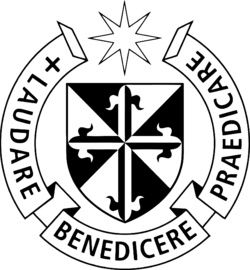
Then the LORD answered me and said: Write down the vision Clearly upon the tablets, so that one can read it readily. For the vision still has its time, presses on to fulfillment, and will not disappoint; If it delays, wait for it, it will surely come, it will not be late. The rash have no integrity; but the just one, because of faith, shall live. (Hab 2:2-4)
The “minor prophets” are by no means minor in importance. They are called “minor” because their books are so much smaller than the so-called “major” prophets. The prophet Habakkuk has an important message for people who have little patience: WAIT FOR IT! The vision “has its time . . . and will not disappoint.” And as the Lord reminds us, it doesn’t take much faith to move mountains . . . faith the size of a mustard seed is enough (Mt 17:20)! Today is the feast of Saint Dominic founded the Order of Preachers . . . a good reminder of the importance of the Word of God in the life of the church.
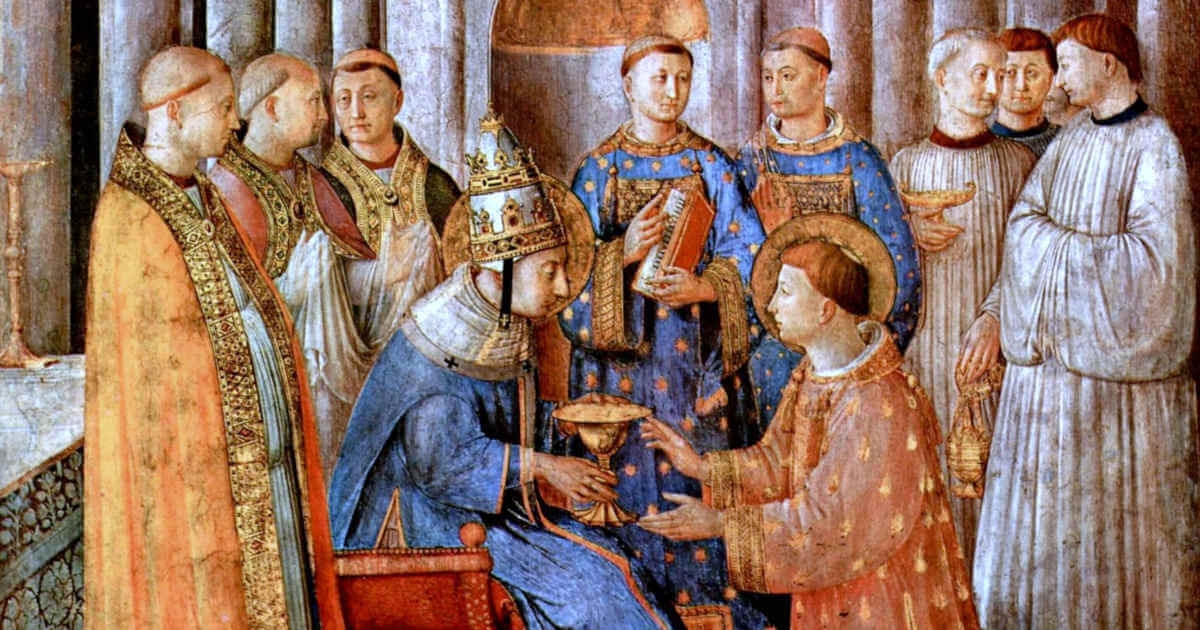
Jesus said to his disciples, “Whoever wishes to come after me must deny himself, take up his cross, and follow me. For whoever wishes to save his life will lose it, but whoever loses his life for my sake will find it. (Mt 16:24-25)
The cost of discipleship . . . sometimes we wonder if it’s worth it. And of course, the answer comes . . . where else would we want to be but with Him? Today is the feast of Pope Saint Sixtus and his companions. What is so special about Saint Sixtus? Well, in three days we will celebrate the feast of Saint Lawrence . . . which is the rest of the story. The Church of Rome traditionally had seven deacons. The deacons held very important positions in the church . . . Saint Lawrence was the arch-deacon. There was a persecution of the church at that time and gatherings of Christians were prohibited. Pope Sixtus said he wanted to celebrate the Eucharist with the community at one of the cemeteries. Cemeteries were outside the city walls and away from the police. So the pope along with the seven deacons gathered with the community. But the police arrived and grabbed the pope and five of the deacons. Pope Sixtus and four deacons were beheaded on the spot: Januarius, Vincentius, Magnus and Stephanus. Two of the deacons managed to escape to the cemetery across the street . . . where they were captured and beheaded: Felicissimus and Agapitus. The arch-deacon Lawrence was arrested and his story follows on August 10th.
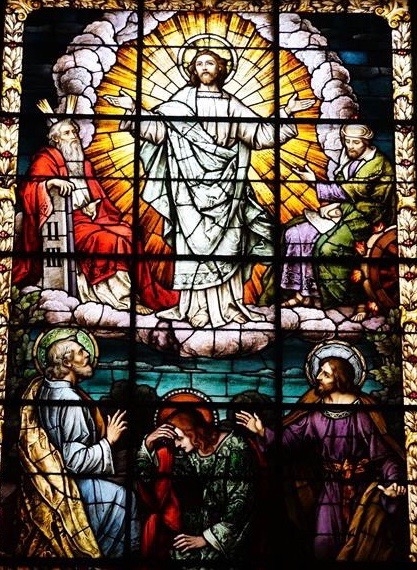
Beloved: We did not follow cleverly devised myths when we made known to you the power and coming of our Lord Jesus Christ, but we had been eyewitnesses of his majesty. For he received honor and glory from God the Father when that unique declaration came to him from the majestic glory, “This is my Son, my beloved, with whom I am well pleased.” We ourselves heard this voice come from heaven while we were with him on the holy mountain. (2 Peter 1:16-18)
Like the witness of the first disciples, we too have been to the Holy Mountain and have caught glimpse of Jesus revealed in glory. And as the Lord reminds us, we are witnesses of these things “to the ends of the earth” (Acts 1:8). The picture today is the Great Western Window of the Basilica of Saint Lawrence in Asheville, NC.
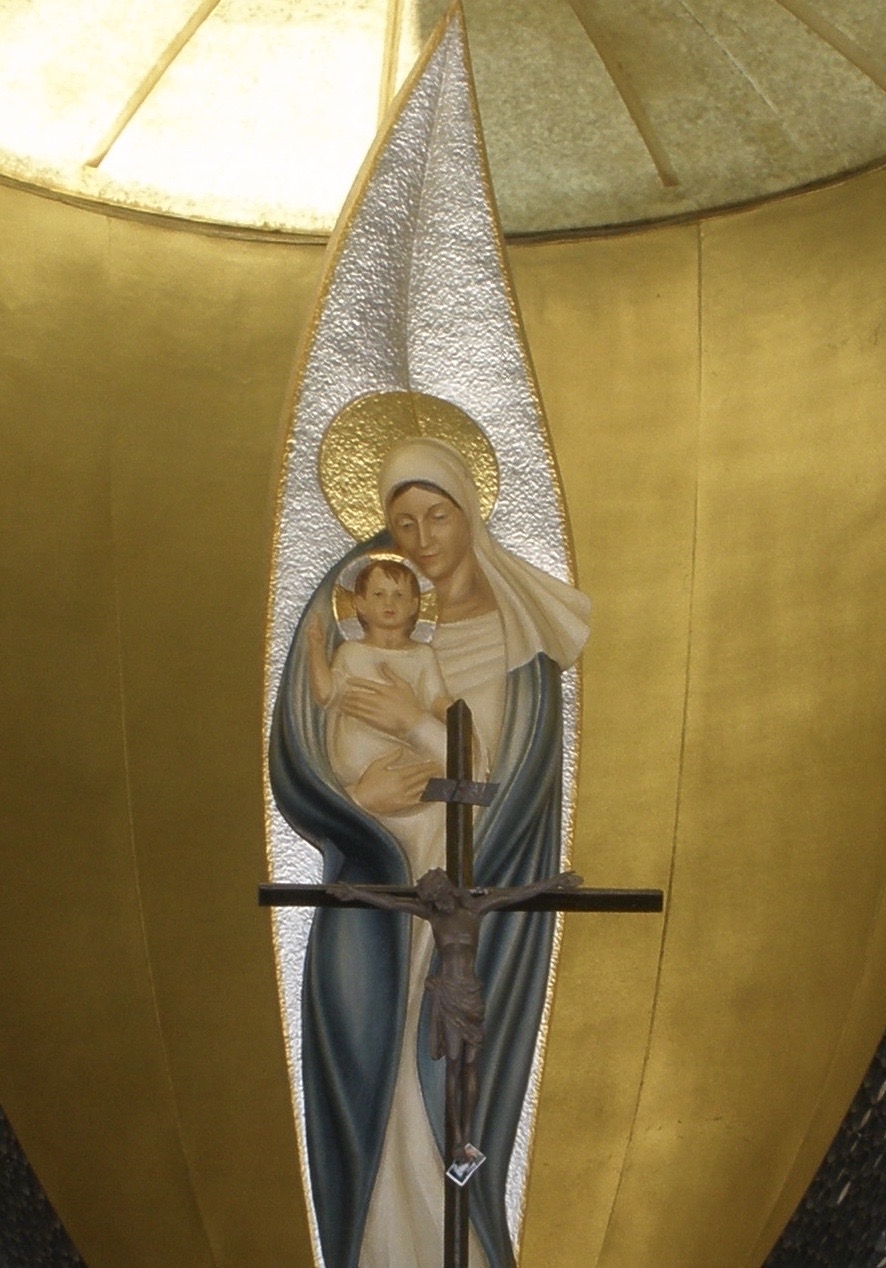
WEDNESDAY, WEEK XVIII, ORDINARY TIME—Dedication of Saint Mary Major, Our Lady of the Snows, August 5
With age-old love I have loved you; so I have kept my mercy toward you. Again I will restore you, and you shall be rebuilt, O virgin Israel; Carrying your festive tambourines, you shall go forth dancing with the merrymakers. Again you shall plant vineyards on the mountains of Samaria; those who plant them shall enjoy the fruits. Yes, a day will come when the watchmen will call out on Mount Ephraim: “Rise up, let us go to Zion, to the LORD, our God.” (Jer 31:3-6)
The promise of restoration . . . but with age-old love. What a beautiful image! And dancing with tambourines! Today is also the feast of the dedication of the Arch-Basilica of Saint Mary Major in Rome. It is also known as Our Lady of the Snows. Located in Belleville, Illinois, and near St. Louis, Missouri, the Shrine of Our Lady of the Snows holds a special place in the heart of the Midwest.
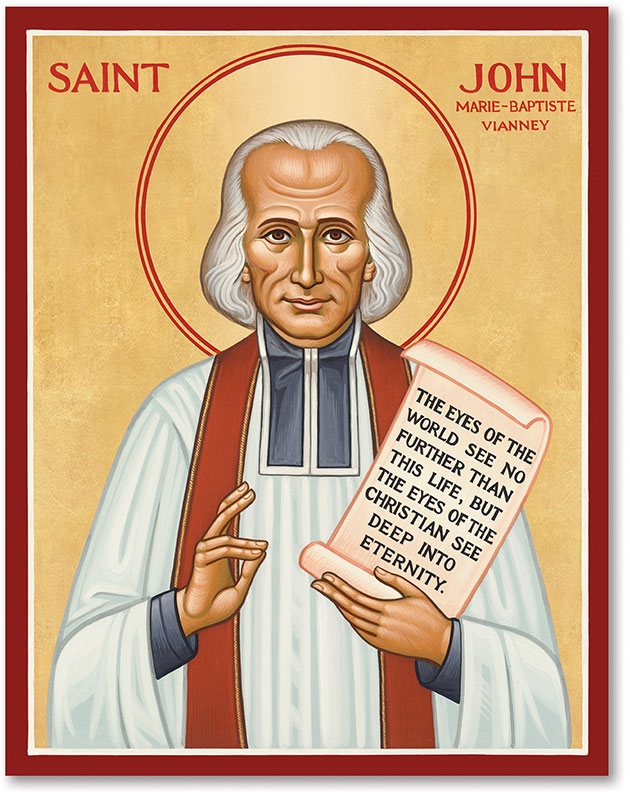
Thus says the LORD: See! I will restore the tents of Jacob, his dwellings I will pity; City shall be rebuilt upon hill, and palace restored as it was. From them will resound songs of praise, the laughter of happy men. . . . . You shall be my people, and I will be your God. (Jer 30:18-22)
Not war, woe and pestilence but a promise of restoration . . . “You shall be my people, and I will be your God.” Today is the feast of Saint John Vianney, the patron saint of parish priests. He always referred to our Lord as “our good God.” In the middle of this pandemic we need a word of hope, we need to hear the laughter of children and the elderly, we need to sing songs of praise once again. Perhaps we could use Saint John Vianney's prayers today!



